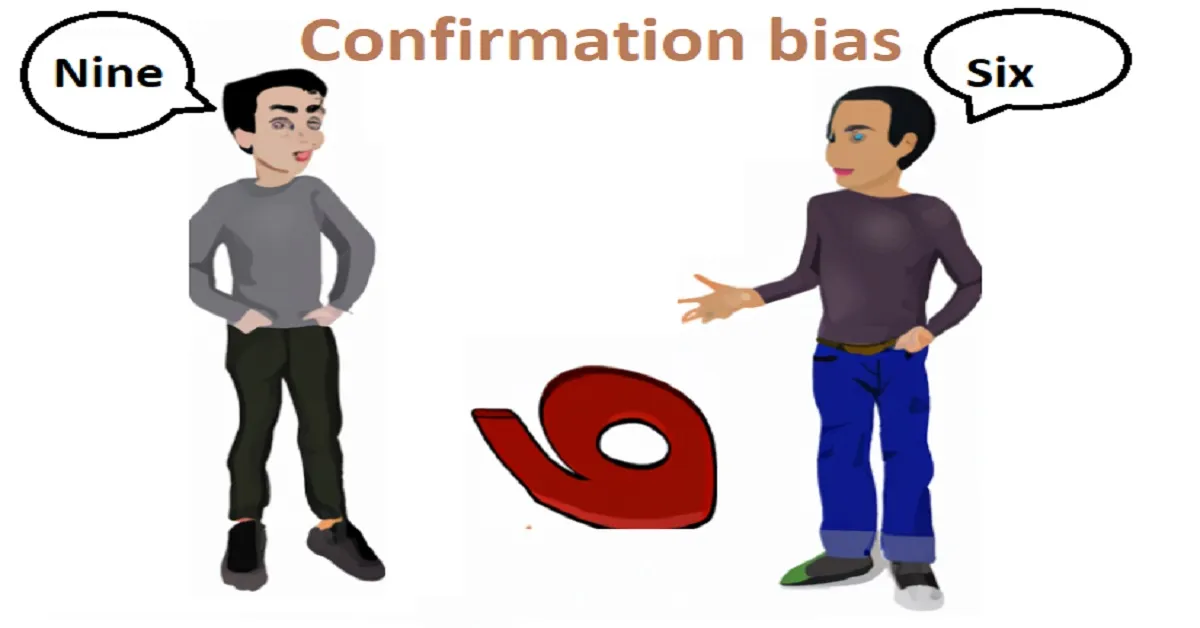Confirmation Bias: Why We Believe What We Want to Believe
Introduction
- The basics of confirmation bias
- How confirmation bias affects our beliefs and decision-making
- Examples of confirmation bias in everyday life
The Psychology of Confirmation Bias
- Cognitive processes that fuel confirmation bias
- The role of emotions in confirmation bias
- The effect of socialization on confirmation bias
The Impact of Confirmation Bias
- How confirmation bias influences our judgments
- Implications of confirmation bias in politics and the media
- How confirmation bias shapes our relationships with others
- The dangers of unchecked confirmation bias
Assessing and Overcoming Confirmation Bias
- Self-awareness and recognizing our own biases
- Strategies for overcoming confirmation bias in ourselves and others
- Teaching critical thinking skills and promoting open-mindedness
- The importance of seeking out diverse perspectives
Practical Advice for Avoiding Confirmation Bias
- Evaluating sources of information
- Engaging with opposing viewpoints
- Taking breaks from social media
- Relying on data over anecdotes
Real-World Examples
- Success stories of people overcoming confirmation bias
- Examples of confirmation bias in political and social spheres
- Notable cases where confirmation bias has led to disastrous consequences
Common Misconceptions About Confirmation Bias
- The myth of impartiality
- The belief that confirmation bias is only a problem for certain people
- The idea that confirmation bias is always conscious
Conclusions
- Why confirmation bias is a persistent problem
- The importance of overcoming confirmation bias for personal growth and intellectual integrity
- The role of critical thinking in combating confirmation bias
Frequently Asked Questions
- What is confirmation bias?
- How does confirmation bias affect decision making?
- Can confirmation bias be completely eliminated?
- Is confirmation bias always negative?
- How does confirmation bias impact society?
Introduction
Confirmation bias is a phenomenon that affects the way people perceive information. It is the tendency to seek out and interpret information in a way that confirms our existing beliefs and values. This can lead to a distortion of reality and a failure to recognize alternative views.
The basics of confirmation bias
Confirmation bias refers to the tendency of individuals to seek out and interpret information that confirms their pre-existing beliefs. It is a cognitive bias that influences how we process information and make decisions.
How confirmation bias affects our beliefs and decision-making
Confirmation bias affects our beliefs and decision-making by encouraging us to seek evidence that supports our views and discount evidence that contradicts them. It can cause us to hold onto false beliefs and make decisions that are not in our best interests.
Examples of confirmation bias in everyday life
Examples of confirmation bias in everyday life can be seen in the selective exposure to news or opinions that confirm our existing beliefs, seeking out information that supports our beliefs while ignoring alternative perspectives, and overlooking or minimizing information that contradicts our beliefs.
The Psychology of Confirmation Bias
Confirmation bias is driven by cognitive processes such as selective attention, memory, and interpretation. Emotions can also play a role in the bias, as people may be more likely to believe information that aligns with their emotions.
The Impact of Confirmation Bias
Confirmation bias can have significant implications on how we perceive information and make decisions. It can impact our judgments about people, events, and social issues. In politics and the media, confirmation bias can lead to the spread of false information and conspiracy theories.
Assessing and Overcoming Confirmation Bias
Self-awareness is an essential first step in recognizing our own biases. Strategies for overcoming confirmation bias in ourselves and others include promoting critical thinking skills, seeking out diverse perspectives, and avoiding relying on anecdotes.
Practical Advice for Avoiding Confirmation Bias
Practical advice for avoiding confirmation bias includes evaluating sources of information, engaging with opposing viewpoints, taking breaks from social media, and relying on data over anecdotes.
Real-World Examples
Examples of success stories of people overcoming confirmation bias, as well as examples of confirmation bias in politics and social spheres and notable cases where confirmation bias led to disastrous consequences, provide insight into the topic.
Common Misconceptions About Confirmation Bias
Myths surrounding confirmation bias such as the myth of impartiality, the belief that confirmation bias is only a problem for certain people, and the idea that confirmation bias is always conscious, contribute to a misunderstanding of the phenomenon.
Conclusions
Effective critical thinking and the recognition of one’s own biases are both critical components to overcoming confirmation bias. The importance of seeking out diverse perspectives cannot be overstated.
Frequently Asked Questions
1. What is confirmation bias?
Confirmation bias is a cognitive bias where individuals tend to interpret and remember information in a way that confirms their existing beliefs while dismissing contradictory evidence.
2. How does confirmation bias affect decision making?
Confirmation bias can impair decision-making by limiting the consideration of alternative viewpoints and evidence, leading to suboptimal choices.
3. Can confirmation bias be completely eliminated?
While it is challenging to completely eliminate confirmation bias, awareness and conscious efforts to seek diverse perspectives can help mitigate its effects.
4. Is confirmation bias always negative?
Confirmation bias itself is neither positive nor negative. However, its unchecked influence can lead to closed-mindedness, misinformation, and strained relationships.
5. How does confirmation bias impact society?
Confirmation bias contributes to societal polarization, the spread of misinformation, and a breakdown in constructive dialogue, affecting social cohesion and trust.




